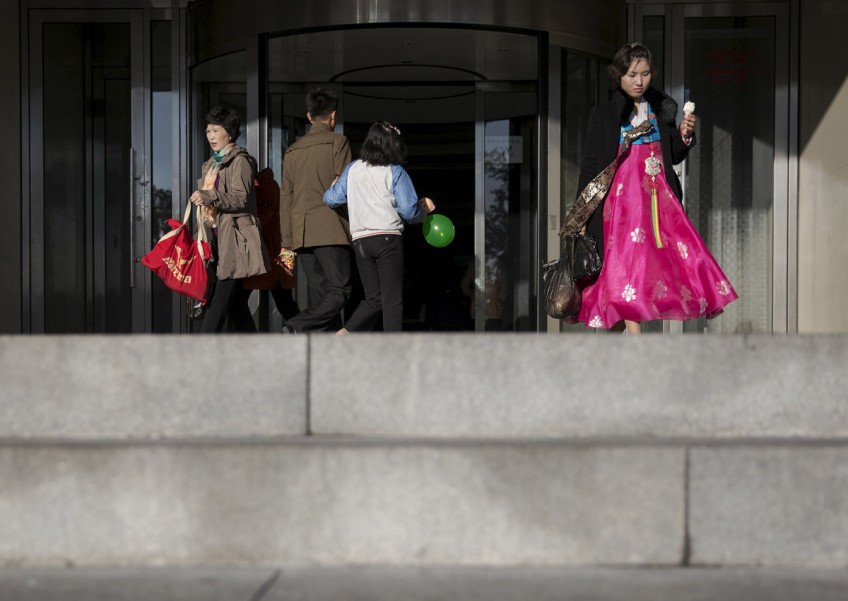North Koreans will soon need visas to visit Singapore

Two North Korean professors went to Singapore's Nanyang Technological University in 2014, not to teach but to learn.
Mr Pak, in his 50s, and Mr Hyon, in his 30s, lived in hostels and "studied very hard" for their master's in business administration while adjusting to the local food and trying to make sense of Singlish.
They graduated last year and returned to their country "to share and pass on what they have learned", said the Singapore-based non-profit group Choson Exchange that facilitated their course and organises programmes to teach North Koreans about business and entrepreneurship.
About 100 North Koreans have visited Singapore for study trips organised by the group since it started in 2009.
From October, however, these visitors will have to apply for visas before embarking on their trips.
The Immigration & Checkpoints Authority said the move was the result of a periodic review of its visa framework for foreigners with other government agencies, "taking into consideration Singapore's international obligations".
South Korean media and observers have linked these moves to toughened sanctions imposed on North Korea.
The 15-member UN Security Council imposed Resolution 2270 in March in response to Pyongyang's fourth nuclear test in January and a long-range missile launch the following month.
It called for meaures including stricter monitoring of cargo to and from North Korea, bans on money transfer and trade bans on items including coal and gold.
Visa restrictions are another form of control.
Poland and the Mediterranean island of Malta have stopped issuing work visas to North Koreans.
North Korean citizens currently have visa-free or visa-on-arrival access to about 40 countries, including Singapore, Malaysia, Ecuador, and Kyrgyzstan.
Analysts said the new visa requirement will make it more difficult for North Koreans to enter Singapore, which may complicate things for those heading to the country for studies, business or medical treatment.
Mr Andray Abrahamian, the Chosun Exchange's associate director of research, said the new rule will require them to spend more time and money preparing travel documents and application materials.
"As the visa requirements are meant to help comply with sanctions, and none of our participants are designated individuals on any sanctions lists, we do not think visa processing will be a problem," he said.
No projects are at stake as a result of the new ruling, but he admitted it "may affect future plans".
While Singapore serves as a good development model for socialist states like China and North Korea that are keen to develop their market economy, it also "needs to work within international legal structures and behave as a responsible global citizen", said SIM University's East Asia expert Lim Tai Wei.
Singapore's monetary authority imposed new North Korea sanctions on local financial institutions in June, according to lawyer Karnan Thirupathy who advises on international trade and sanctions.
Additional sanctions that apply across the board, he said, would "likely have a more significant and direct impact on Singapore-North Korea relations and business".
North Koreans come to S'pore to study
There are no official figures available on how many North Koreans have entered Singapore in the past.
The Immigration & Checkpoints Authority does not reveal nationality-specific figures.
The Singapore-based Choson Exchange said some 30 North Koreans travelled to Singapore last year to attend programmes organised by the non-profit group.
They included short study trips, workshops, internships and a three-month mini MBA programme that covered finance, accounting and market courses as well as visits to start-up incubators.
This article was first published on August 8, 2016.
Get a copy of The Straits Times or go to straitstimes.com for more stories.